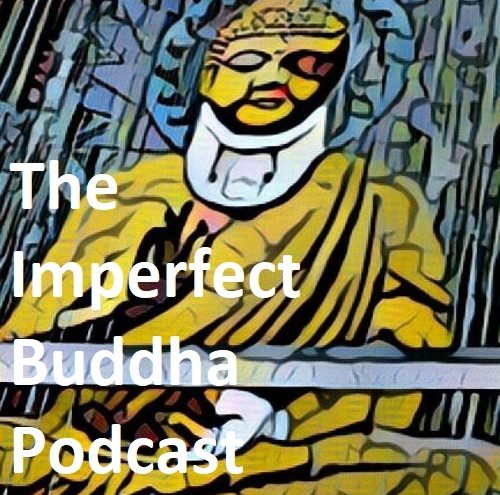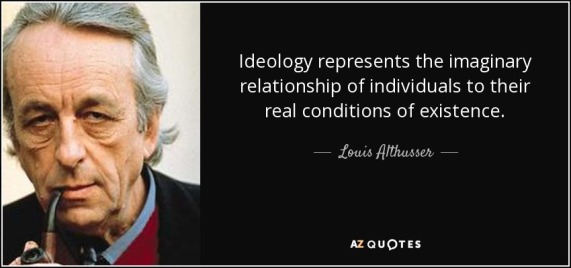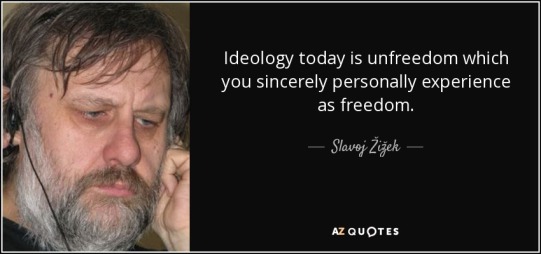What will follow over the next few weeks is a series of blog posts designed to take the next step in the exploration of a post-traditional approach to Buddhism. It will summarise much of the work taken place at the site and expand where necessary. It will also employ two key additions. Firstly, a number of new topics will be looked at and, secondly, a consideration of more practical applications will take place that readers may find useful in re-examining their own relationship with Buddhism. In this way, we might define it as a primer.
Posts will be in the form of short sections for people to browse through, skip or return to, with a presentation style designed for shorter attention spans and the quick location of personally relevant material, although a narrative line does run through, unifying the different posts.
This primer also acts as either a general introduction to post-traditional Buddhism for those pondering whether to listen to the upcoming Imperfect Buddha Podcast episode, or as a return to document for reviewing some of the ideas therein. At the very least, it should give readers something to think about and a means for approaching Buddhism more consciously (i.e. creatively and critically). If you have criticisms, additions, questions or doubts after reading, feel free to leave a comment.
Where to begin? Well, with ideology of course. A 20th century buzzword, it has evolved and expanded in its usage and usefulness over the last decades. It no longer defines solely the major political ideologies of Capitalism and Communism, but any seemingly self-contained system of ideas, behaviours and norms that people identify with. Ideology may not be everything, but it is everywhere, and this makes it a necessary topic of study. What follows is a short essay of sorts on ideology and Buddhism as religion. It also sets the initial ground for the sort of exploration I intend to take in subsequent posts.
Do enjoy…if your idealogical leanings allow it.
Ideology strikes again
Although it may be taken for granted in the West that religion and government are separate institutions, it is quite clear that such separation has never fully taken place. We need look no further than Italy, Poland, Spain or Ireland, and increasingly the United States, for copious examples of religious meddling in state affairs. This dynamic is not only institutional and external to our own concerns and experience of the world. The internal manifestation of the dichotomy between the spiritual and the material, the secular and the sacred, is at the heart of what we believe ourselves to be or not to be. Committed Buddhists are interesting in this regard because unlike Christians, Muslims, Sikhs and so on, they are all too often likely to consider their religion or spiritual path as being rational and in line with secular values, which is to say, not at all religious. In polls, they typically define themselves as members of that growing group known as the spiritual but not religious. Such a belief is problematic, however, as although many Buddhists like to think of Buddhism solely as a philosophy or a way of life, it is additionally a world religion and therefore carries with it many of the facets that define those other religions, including ideological affiliation and the process of subjectification. In this context, subjectification refers to the process by which an ideology moulds people into subjects that are integral to its own maintenance and it does so in its own image.
If you spend enough time in any institutionalised form of Western Buddhism, and examine its forms with a critical eye, you will start to see that it has many similarities to religious congregations of all forms. These similarities may be explicit and out in the open or hidden or subtle, but either way, they are there in the form of rituals & beliefs, power structures & dress code, deferral to authority & sacred texts, objects and sites, specific notions of past present and future, mythological stories and founding figures, along with formulations of what is good and bad, and the nonnegotiable behavioural norms to be adopted. None of these facets are inherently good or bad. They are simply the structural, patterned expressions of human activity that can be found in all religions and they make up an elaborate ecology that followers enter into: a sort of alternative world that marks a break from the continuity of one’s prior habitual existence and surroundings, we might say, a refuge. When handled well, a new Buddhist ecology can offer a context for gathering new insights, tasting new experiential worlds and destabilising the previously inhabited reality which held together a sense of self and place in the world. When handled badly, it can end up being an ecology of expectations and conformism. A place of entrapment in which an expectant self is modelled to new arrivals to be copied, constructed and identified with.
Why start off by mentioning this? Well, if Buddhism is a religion, it is not as neat and tidy as many western Buddhists might like it to be and redefining it as a path or philosophy does not make those religious elements magically disappear. What’s more, it means that involvement in Buddhism involves a whole set of conscious and unconscious agreements. In fact, we can say that when you enter into relationship with Buddhism and become a Buddhist, you agree to participate in the maintenance of culture: one that is performative, stabilising of emergent identities, and concerned with the formation of a new experience of self in the world.
It would be wrong to presume that Buddhism can escape from our very human failings in its various attempts to construct answers and institutions capable of responding to deep human concerns. It should come as no surprise that Buddhisms form into ideological systems as much as any other. To the passionate believer, however, Buddhism is very special and often conceived of as a self-sufficient, complete path that does not need to explain itself to the wider cultural world. This can lead to any form of criticism being unwelcomed. Yet, to point out that Buddhism is always ideologically formed does not mean to say that it is only ideology or that ideology is inherently bad. Rather, in pointing this fact out we are reminded that Buddhism is manmade and because of such is prone to the foibles of human activity and the concerns of ideological systems, and cannot be perfect, unless we use such a term to define things just as they are, in which case, we might as well not use it.
This presents us with an identity problem because all ideological systems are bound up in culture, time and place. This explains why the various forms of Buddhism are different in their appearance and oftentimes variant in their core beliefs and practices, in spite of being part of the same religious family. Getting into arguments or debates about which is ultimately the best or most authentic misses the point. They are different and the differences lead to the formation of different Buddhists and therefore the formation of different identities. Some of those that are aware of this may react with a comparative analysis based on personal ideas of what is important and they may look for one of the following; the original, the most authentic, the truest, or simply the one they feel most drawn to. This is fine of course and perfectly understandable, but if one does not recognise that the different Buddhisms tend to lead followers down pre-determined pathways, then ideological entrapment will likely ensue. Buddhist groups may be fortunate enough to have a teacher who recognises this and incorporates some means for reducing ideological blindness. All too often, however, teachers themselves fail to appreciate the ideological nature of their tradition and end up reproducing it as unwitting, faithful subjects. This creates a form of entrapment in which liberation is an idealised thought prison to which unthinking followers aspire, thus creating a contradiction between the supposed aims of Buddhism as a path of liberation, and the role of Buddhism as ideology that leads followers to construct replacement identities.
It is of great importance to recognise the existence of this fundamental paradox at the heart of organised Buddhism and the role of subjectification at play. Buddhism can end up creating good Buddhists rather than freeing them up to work on pre-existing self narratives. It can form good ideologically identified followers rather than provide human individuals and collectives with the means for coming to terms with our existence and its inherent suffering. It can prescribe its own forms and assumptions over an invitation to explore the degree to which some form of liberation from ignorance and its consequences is possible: a task which Buddhism ought to be ideally suited for but often fails to live up to.
To recognise these tendencies is to ask the question of what to do with Buddhism and how to relate to it. Clearly a Buddhism created for the Chinese or Tibetans several hundred years ago in a very different social context is not going to be the most appropriate form of individual and social practice in Europe or an American setting in the 21st century. This does not mean, just to throw in a necessary caveat, that there are not very happy Western Chan and Kagyu Buddhists out there, but rather, that we will likely need alternative forms of practice in this time and place and that different sorts of practice will be essential for dealing with the collective forms of suffering and ignorance that currently dominate the world we inhabit. A post-traditional approach takes this into consideration and acts as an invitation to Buddhists to dialogue with Buddhism afresh and to act on it. Eventually, where the inspiration is present, those adopting such an approach would be actors in a creative, critical engagement with Buddhism in order to liberate its human potential from the walls of tradition, either to transform tradition itself, or generate new forms of practice that may or may not be defined as Buddhist.




Excellent work, Matthew. I’m very interested in this series on ideology and post-traditional buddhism. I’ve been exploring similar themes over at Engage. Most recently, Post-Buddhism: The Dharma: https://engagedbuddhism.net/2016/12/05/post-buddhism-the-dharma/
I’ve also gone back and started to re-read some of your earlier posts on ‘post-traditonal’, new understandings of traditional Buddhist terms such as enlightenment, karma, etc. I’ve done similar work and hope to do more work on this after reading your series. What I write below is as much as response to that earlier work as the current series on ideology.
I agree with the idea that western Buddhism may end up looking entirely different from historically Asian forms. The western thought/practice that is the most resonant with Buddhism is post-structuralist Deconstruction. Deconstruction is integral to both critical theory and critical dharma. Much work has already begun on post-structural dharma: David Loy, Edwin Ng and Robert Hattan.
A second branch of thought/practice is systems theory, which also embraces complexity, chaos theory, ecology and evolution. Whereas Deconstruction is the analytical breaking down of wholes into parts/void, systems theory is the reconstruction of the whole and the relation of parts to whole/interdependence. Systems theory also accounts for the diversity of forms, which then allows a way to theorize a liberation based on diversity, rather than a liberation based only on similarity. The pioneer in this field is undoubtedly Joanna Macy (Mutual Causality in Buddhism and General Systems theory.)
Deconstruction, critical and systems theory integrate within a broader realm of social theory. The real challenge is to continue the development of a dharmic social theory, to provide an explicit and rigorous social dimension to Buddhism/dharma that is lacking in earlier traditional versions. That would be a significant contribution from Western culture. I have it in mind to undertake this work, as soon as I finish my dissertation.
All of the above social theory is ideology, no less so than the ideology of Buddhism. But this is a practice of using a different ideology than is native to traditional Buddhism in order to draw out new meanings and applications.
The question is, why bother? If we are going to so thoroughly deconstruct Buddhism and its ideology, or interpolate new ideologies/analyses, why bother to do all this work? What is the benefit? Obviously, I wouldn’t bother with all this work unless it was inherently meaningful to me. The whole point is self-and collective liberation from both western and Buddhist ideologies, and Buddhism is (or could be) a grand invitation and a path to undertake that form of liberation.
LikeLike
Thank you for the kind words Shaun. Why bother, indeed? That’s a question each finds an answer to, or not. There’s no single right one though.
LikeLike
So I see this as a dialectic: traditional Buddhist ideology critiques/deconstructs Western ideology, and Western ideology/social theory critiques/deconstructs traditional Buddhist ideology.
LikeLike
Althusser on ‘Causes and Conditions”: As Marx said, every child knows that a social formation which did not reproduce the conditions of production at the same time as it produced would not last a year.[2] The ultimate condition of production is therefore the reproduction of the conditions of production. This may be ‘simple’ (reproducing exactly the previous conditions of production) or ‘on an extended scale’ (expanding them). Let us ignore this last distinction for the moment.. . . It follows that, in order to exist, every social formation must reproduce the conditions of its production at the same time as it produces, and in order to be able to produce. It must therefore reproduce:
1. the productive forces,
2. the existing relations of production
LikeLike
For an explanation of ideology, you can’t do better than Althusser’s Ideology and Ideological State Apparatuses (Notes towards an Investigation) 56 pages.
https://www.marxists.org/reference/archive/althusser/1970/ideology.htm
LikeLike